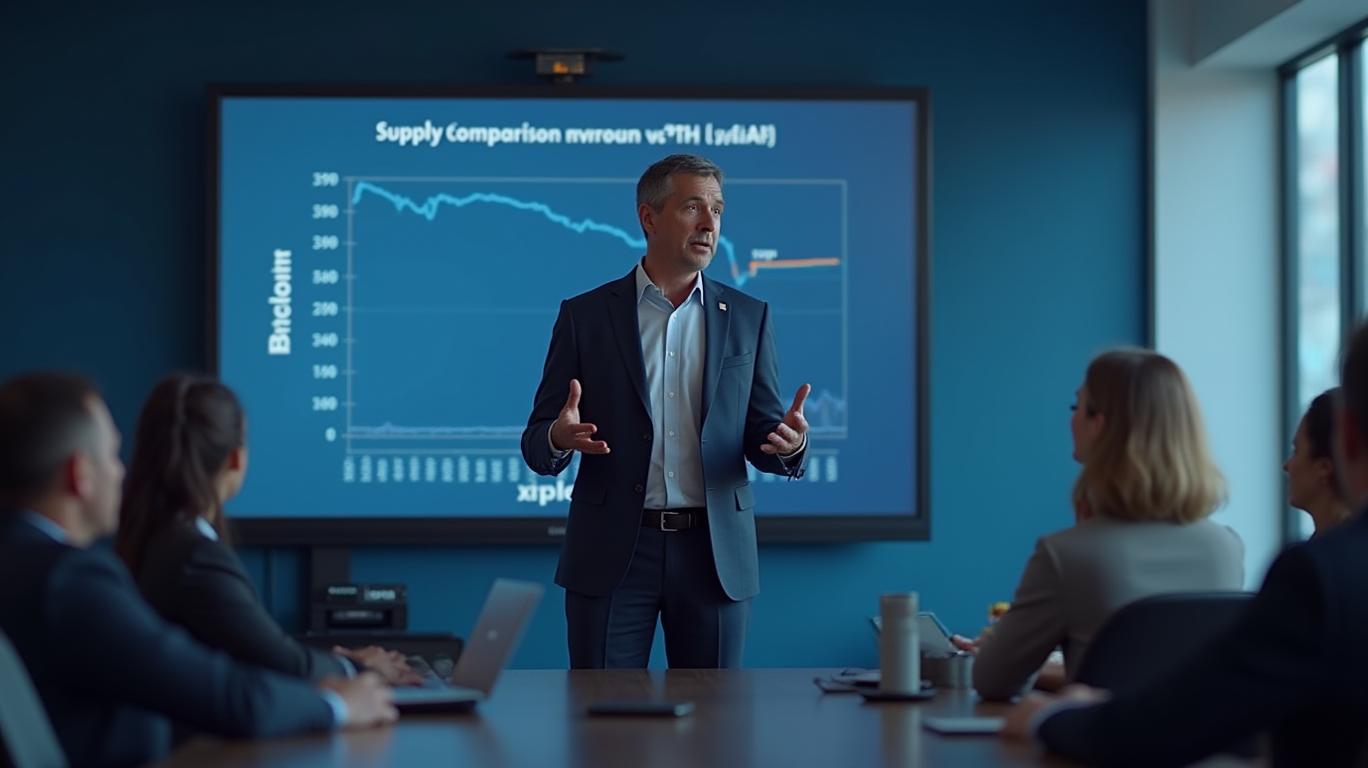Ripple's CTO Challenges Bitcoin-XRP Supply Comparison
Ripple's CTO, David Schwartz, has recently addressed a long-standing debate in the crypto community regarding the comparison between XRP and Bitcoin, particularly focusing on their supply dynamics. In a series of tweets, Schwartz challenged the common practice of evaluating these cryptocurrencies based on supply and unit price, arguing that such comparisons often lead to misinformation and distorted perceptions of their value.
Schwartz began by refuting the notion that XRP and Bitcoin are promoted in the same manner. While MicroStrategy's CEO, Michael Saylor, actively encourages people to buy Bitcoin, Ripple executives, including CEO Brad Garlinghouse and CTO David Schwartz, have not explicitly promoted XRP. An XRP supporter pointed out this difference, suggesting that assets requiring direct promotion might have underlying weaknesses, which sparked a response from the crypto community.
Crypto commentator CryptoApostle weighed in on the debate, highlighting the difference in supply between Bitcoin's 21 million coins and XRP's 100 billion. He argued that Bitcoin's scarcity makes it more necessary to guide people towards it, implying that XRP does not face the same limitations. However, Schwartz challenged this perspective, asserting that supply comparisons between XRP and Bitcoin are often misleading.
Schwartz emphasized that measuring crypto assets in "full coins" without considering market cap or divisibility leads to misinformation. He compared it to measuring distances in inches versus miles, stating that such comparisons distort the true value and utility of each asset. Schwartz maintained that supply and price-per-coin are often misused in investment decisions, as some investors believe XRP is a better buy simply because it appears cheaper per unit compared to Bitcoin—a narrative he believes is harmful.
CryptoApostle maintained that people naturally compare whole coins rather than smaller units like satoshis or drops. He also pointed out that Ripple's partnerships with banks indirectly market XRP, even if executives do not explicitly promote buying it. Schwartz, however, continued to stress the importance of accurate comparisons, stating, "You can't compare the prices for 'one coin' for precisely the same reason you can't compare the supplies measured in 'number of coins,'".
Ultimately, the discussion underscores the need for crypto investors to look beyond surface-level comparisons and evaluate assets based on their fundamental value. By considering market cap, divisibility, and utility, investors can make more informed decisions when 
Quickly understand the history and background of various well-known coins
Latest Articles
Stay ahead of the market.
Get curated U.S. market news, insights and key dates delivered to your inbox.

Comments
No comments yet